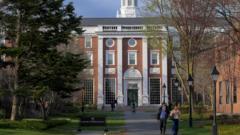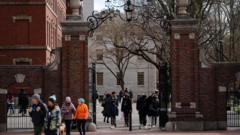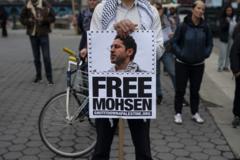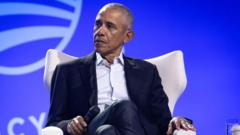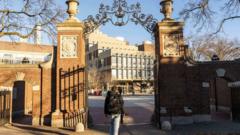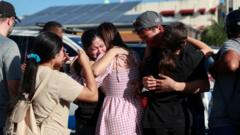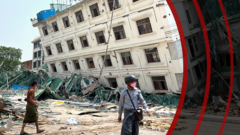On the 80th anniversary of Auschwitz's liberation, survivors like Leon Weintraub and Tova Friedman urged the world not to forget the lessons of the past. Dignitaries, including King Charles III, commemorated the event, highlighting the importance of memory and vigilance against rising hatred and antisemitism.
Voices of Auschwitz: Survivors Urge Awareness as Legacy Fades
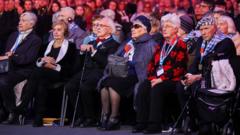
Voices of Auschwitz: Survivors Urge Awareness as Legacy Fades
As the number of Auschwitz survivors dwindles, their poignant messages resonate urgency in the fight against intolerance during the 80th liberation anniversary.
Survivors of Auschwitz delivered a profound message on the anniversary of the camp's liberation, reminding the world of the dangers of forgetting history as their voices become fewer. "We were stripped of all humanity," 99-year-old Leon Weintraub reflected poignantly as he stood beside the infamous Death Gate at Birkenau. The gathering saw the presence of world leaders and European royals joining 56 Holocaust survivors to honor the 80 years since Auschwitz's liberation from Nazi horrors.
Tova Friedman, who was a toddler during the genocide, vividly recounted her experiences, declaring, "We were victims in a moral vacuum." The weight of history carried a critical warning focused on the perils of intolerance, with antisemitism seen as an early warning sign for broader societal decay. The dark history at Auschwitz-Birkenau remains staggering—over 1.1 million were murdered between 1941 and 1945, with nearly one million being Jews.
In a solemn ceremony held under a large white tent at Auschwitz, museum director Piotr Cywinski urged attendees to preserve the haunting memory of the Holocaust. He stated, "Without memory, you have no history, no experience, no point of reference," a sentiment echoed throughout the day's global observance of International Holocaust Memorial Day.
Polish President Andrzej Duda reaffirmed Poland's commitment to safeguarding the memory of six death camps on its soil, presenting a wreath at the execution wall in Auschwitz 1. Meanwhile, at the United Nations, Secretary-General António Guterres emphasized the call to action against rising Holocaust denial and bigotry worldwide.
King Charles, making a historic visit as the first serving British monarch to do so, emotionally engaged with survivor testimonies as he laid a wreath in remembrance. His visit to the Jewish Community Centre in Krakow reflected on the rebirth of Jewish life following the Holocaust and urged the world to foster a more compassionate future.
Polish-born British survivor Mala Tribich cautioned against the implications of despotism and indoctrination on youth. Meanwhile, Lord Pickles, the UK's envoy for post-Holocaust issues, warned of the ongoing threat of Holocaust distortion and reiterated that survivors' stories must continue to shift from memory to history.
As these voices fade, the urgency for remembrance grows, urging society to remain vigilant against the same hatred that once led to unimaginable suffering.



